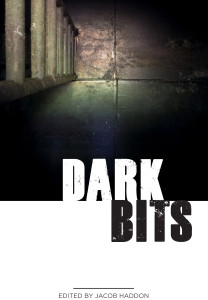 I have a few different fingers in the publishing pie. I wouldn’t be writing for the Fictorians if I wasn’t a writer, but that’s not the aspect of publishing that dominates my time. I’m also a professional editor, something I don’t often talk about in my Fictorian blog posts. In addition, I am a typesetter. Occasionally I’ve even served as a slush pile reader, though that torturous (and tortuous) experience hasn’t always been a high point.
I have a few different fingers in the publishing pie. I wouldn’t be writing for the Fictorians if I wasn’t a writer, but that’s not the aspect of publishing that dominates my time. I’m also a professional editor, something I don’t often talk about in my Fictorian blog posts. In addition, I am a typesetter. Occasionally I’ve even served as a slush pile reader, though that torturous (and tortuous) experience hasn’t always been a high point.
Recently, while on an afternoon walk through my neighbourhood, I realized that I’m kind of unemployable in the “real world.” I’ve been a full-time, self-employed contract worker since the age of twenty-four, and all of my skills are in publishing. Sure, I could wait tables and wash dishes, but I am pointedly leaving those items off my resume. To say the least, I’m firmly enmeshed in the business of publishing.
This is a pretty surprising career development, at least from the perspective of ten-years-ago me, who didn’t set out a specific goal to get to where I am today.
However, I wouldn’t go so far as to call it accidental. Rather, I started making choices that allowed me to follow my publishing dream, and those choices led to opportunities, and those opportunities, when seized, led to my current reality. In short, I got on the train.
But I’m getting ahead of myself.
The watershed moment happened in Pasadena, California in the winter of 2010—the first annual Superstars Writing Seminar, which we’ve devoted a lot of digital ink to on this blog. Over the course of the next couple of years, I went from trying really hard to be a writer in a hostile world to being surrounded by writers all the time. The world doesn’t seem so hostile now. The proportion of my Facebook friends who are writers is truly out of control. I used to read my newsfeed for updates from old high school buddies. I can hardly do that anymore, because the newsfeed has gradually been swallowed up by publishing business.
I call it business, because that’s what it is. Every day, my friends are asking for advice, providing advice (because some of my friends are seasoned pros), posting articles from trade magazines and blogs, providing sneak peeks of cover art, hunting for beta readers, and on and on and on. This level of immersion, I think, is crucial in a writer’s life because it marks the point when education becomes continuous—and almost automatic. I live and breathe this stuff.
The first conventions and seminars I went to were all about learning new things. Attending Superstars in Pasadena was an overwhelming experience, because ninety-five percent of what I heard there was totally brand-new information. I came home with over forty pages of notes. The notes were important, but the forty friends I picked up were actually much more helpful, because they got the ball rolling. Instead of cramming years’ worth of learning into one weekend in a convention centre meeting room, I started getting it piecemeal every day of my life.
This last spring, I went back to Superstars for the first time in four years. In 2010, attending Superstars was like attending a computer programmer’s convention without any computing knowledge beyond how to boot up Windows. I could barely follow along half the time; I hung out at the fringes of conversations, snatching up scraps like a hungry dog beneath the family dinner table. I was hopelessly lost. This time, I was the guy talking contract terms, market trends, and business practices. It’s impossible to pinpoint where and when it happened, but I came to speak the language.
The information at Superstars 2013 had changed probably sixty percent from the first year—because that’s how quickly this industry is shifting under our very feet—but I went from forty pages of notes to four. Maybe fewer. It’s not that the information wasn’t timely and valuable, and yet I absorbed very little that I didn’t already know—well, that’s not true; there was plenty that I didn’t know, but I was so well primed for it this time around. The benefit was not all of the advice and new-fangled information. It was having so many of my business friends and contacts in the same place at the same time.
That’s what will happen once you start down this track. You don’t need to have a step-by-step plan for how you’re going to succeed. The industry changes too fast for step-by-step plans to be practical, anyway.
Think of the publishing industry as a train. One day, it motors past your station, so you hop aboard. At first, you don’t know any of your fellow passengers and you don’t have the context to understand their insider conversations. But there are only so many people on this moving train, so unless you hide in your cabin all day and refuse to talk to anyone, it’s only a matter of time before you’re caught up in the hustle and bustle of daily train life.
So just get on the train.


